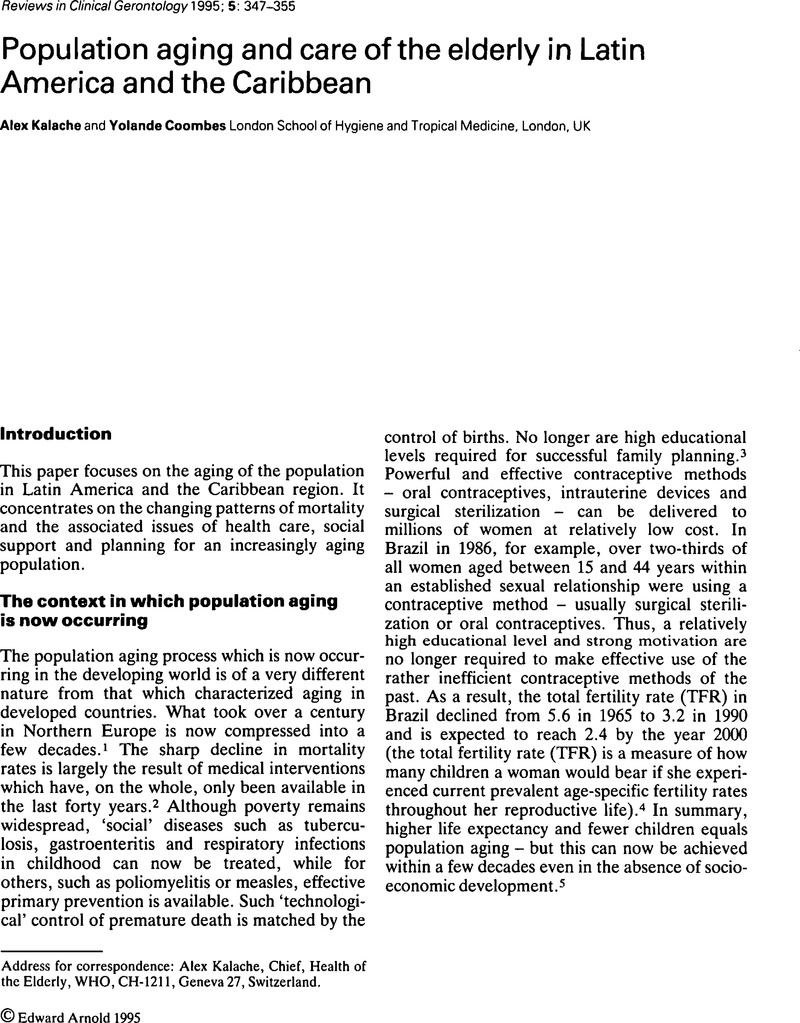Crossref Citations
This article has been cited by the following publications. This list is generated based on data provided by Crossref.
Palloni, Alberto
Pinto-Aguirre, Guido
and
Pelaez, Martha
2002.
Demographic and health conditions of ageing in Latin America and the Caribbean.
International Journal of Epidemiology,
Vol. 31,
Issue. 4,
p.
762.
Souza, Elza Maria de
2003.
Intergenerational interaction in health promotion: a qualitative study in Brazil.
Revista de Saúde Pública,
Vol. 37,
Issue. 4,
p.
463.
Alves, Roseane Victor
Mota, Jorge
Costa, Manoel da Cunha
and
Alves, João Guilherme Bezerra
2004.
Aptidão física relacionada à saúde de idosos: influência da hidroginástica.
Revista Brasileira de Medicina do Esporte,
Vol. 10,
Issue. 1,
p.
31.
Calvo, Esteban
Berho, Maureen
Roqué, Mónica
Amaro, Juan Sebastián
Morales-Martinez, Fernando
Rivera-Meza, Emiliana
Gutiérrez Robledo, Luis Miguel F.
López, Elizabeth Caro
Canals, Bernardita
and
Kornfeld, Rosa
2019.
Comparative analysis of aging policy reforms in Argentina, Chile, Costa Rica, and Mexico.
Journal of Aging & Social Policy,
Vol. 31,
Issue. 3,
p.
211.
Parey, Bephyer
2022.
Well‐being among older persons with disabilities in Trinidad.
Health & Social Care in the Community,
Vol. 30,
Issue. 4,



